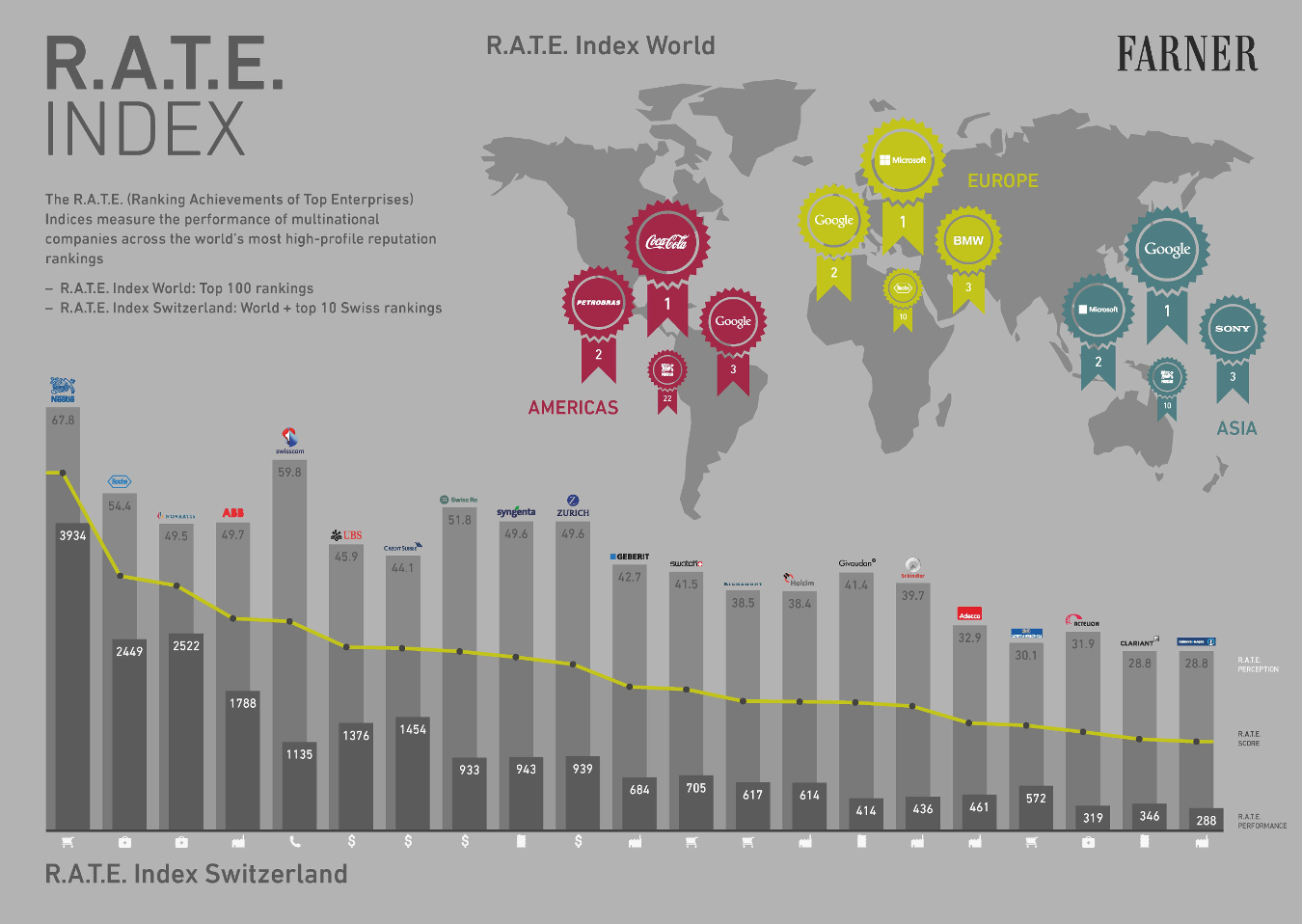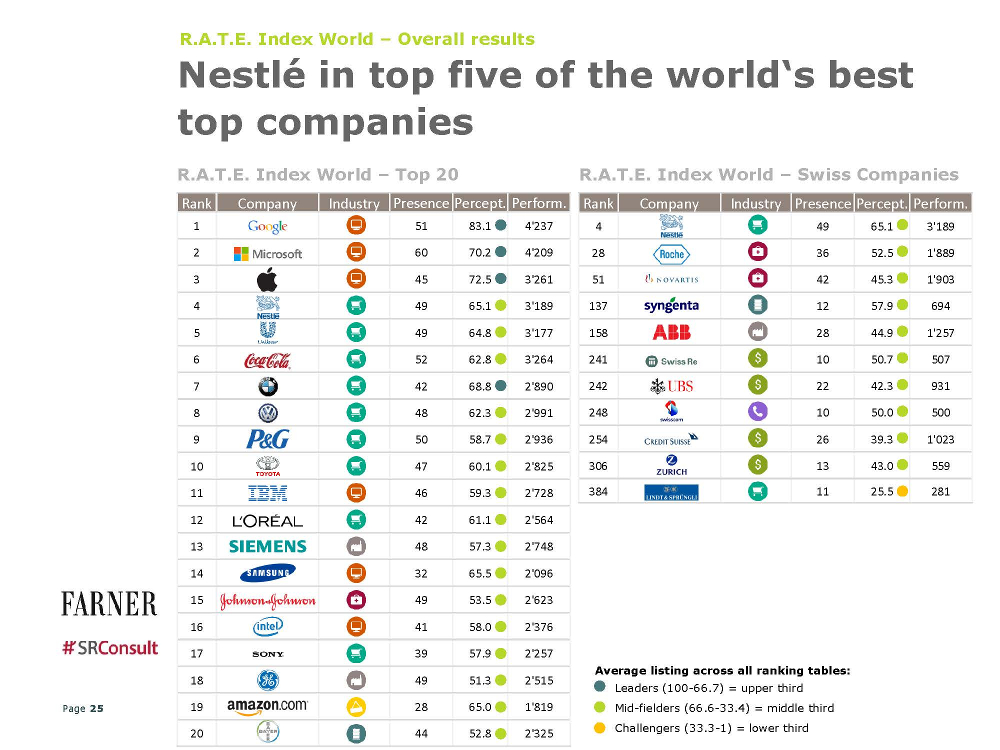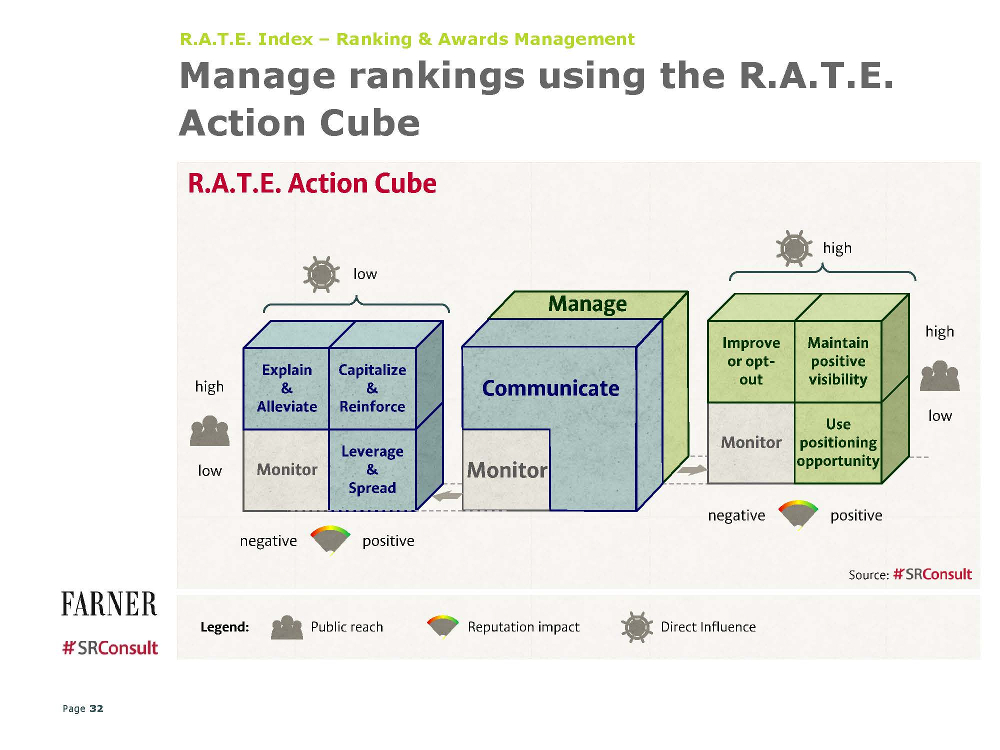R.A.T.E. Indices aggregate the world’s most visible corporate rankings
The R.A.T.E. indices measure the performance of multinational companies across the world’s most high-profile reputation rankings.
R.A.T.E. Index World: Top 100 rankings
R.A.T.E. Index Switzerland: World + top 10 Swiss rankings
Through the consolidation of ranking results, the R.A.T.E. indices form meta-rankings that enable to:
- Identify those companies which perform well/weak across markets and reputation dimensions.
- Understand the image companies convey to their stakeholders, when directly compared to their peers.
R.A.T.E. Index 2015 – Key findings

- R.A.T.E. Index measures the performance of multinational companies across the world’s most high-profile corporate rankings.
- It can be leveraged as an indicator for the impact corporate rankings have on the reputation of a company, on all important reputation dimensions.
- More than half of all R.A.T.E. rankings are manageable; the R.A.T.E. index provides a first basis for active management of rankings to improve corporate reputation. It helps to identify areas of strength to be leveraged, new positioning opportunities, as well as risks that need to be monitored.
- Of the 21 SPI companies qualifying for the R.A.T.E. Index Switzerland, Nestlé leads by a wide margin. Nestlé is present in more than half of all R.A.T.E. rankings and when listed, it often holds high positions.
- Nestlé also takes the top spot in all four reputation areas achieving its highest performance score in “Society Outcomes“.
- Google tops the R.A.T.E. Index World ahead of Microsoft and Apple. Nestlé (#4) is the only Swiss company listed in the top 20. Among other Swiss companies that qualified for the list are Roche (#28), Novartis (#51), and Syngenta (#137).
R.A.T.E. Index World
R.A.T.E. Index Switzerland
Use R.A.T.E. to start your own strategic ranking management program
More than half of all R.A.T.E. rankings are manageable; the R.A.T.E. Index provides a first basis for active management of rankings to improve corporate reputation. It helps to identify areas of strength to be leveraged, new positioning opportunities as well as risks that need to be monitored.
Monitoring: Monitor ranking results in order to identify risks and to leverage opportunities.
Communication: Be in the lead to communicate ranking results to internal and external stakeholders (interpretation leadership).
Management: Participate in relevant corporate rankings to improve results and benchmark against your peers.
Agenda setting: Initiate own rankings or awards for corporate positioning or to drive an important topic.




